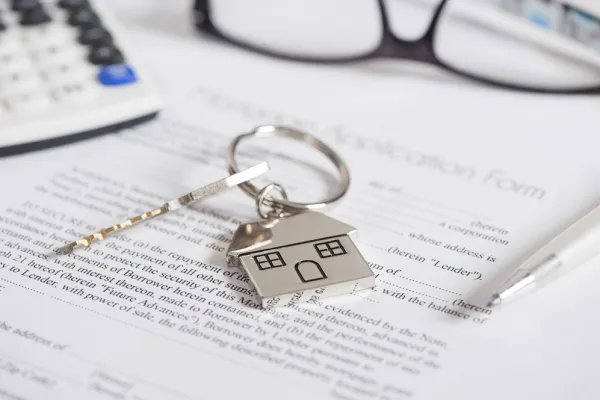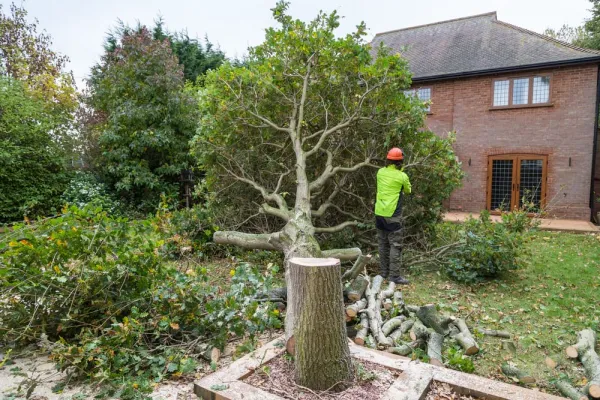There are many different models of property ownership in the UK.
Owning a property by yourself gives you a lot of freedom.
You don’t need anyone else’s permission to decorate, renovate, extend, sell, etc.
Sole ownership makes all this possible.
Read on to find out what it is and whether it’s right for you.
Sole ownership definition
Sole ownership means that you own a property by yourself. You don’t have to consult with any other people when you make most decisions.
(Of course, when it comes to issues that require planning permission, boundaries, etc., you still need to deal with the appropriate parties).
It also means that you are solely responsible for all fees and maintenance, even if others live in the property.
How common is sole ownership?
Sole ownership is one of the most common types of home ownership in the UK.
It’s prevalent with older property owners. They usually have enough capital to not depend on anyone else to pay off their mortgage.
By contrast, younger property owners typically jointly buy property to make the mortgage more affordable. (There are different ways to do this, including joint tenancies and tenants in common.)
How do I check whether I’ve got sole ownership?
You can use the government’s website to find out who owns a property.
They have a feature called ‘find a property’, which links with HM Land Registry.
If you can’t find this information online, you could call a support line on the government website to help you.
A solicitor can also gather the information for you, although this will involve you paying them a fee.
Transferring to sole ownership
You can transfer a house into sole ownership, even if it hasn’t been held this way previously. Common examples include:
- When two people divorce
- Gifting it to someone in a Will.
All parties involved must sign a deed to do this. You then submit it to HM Land Registry.
If there’s an ongoing mortgage on the property, you’ll need to prove to the lender that you can afford this by yourself.
You should pay a solicitor to help you if you want to establish sole ownership of your property. They can create the necessary paperwork and submit it.
Can I change my sole ownership to add someone on?
Yes, this can be done through a process called transferring ownership.
A solicitor can help you to file the necessary paperwork and get it approved.
You usually do this when you want to add a partner or family member onto the ownership. This is useful if you pass away and want it to go straight to them without the probate process.
The two most common methods of ownership for two people are ‘joint tenants’ and ‘tenants in common’. Your circumstances will impact which one suits best.
Advantages of sole ownership
More control
Sole ownership gives you more control over your property than other ownership models.
You can decorate or extend your house without needing permission from anyone else. This potentially makes it far quicker and easier to make decisions.
More profit
You also receive all the benefits of the equity tied up in your property.
If you ever sell the house, all proceeds go to you. This is particularly noteworthy when paying for extensions or refurbishment of your home, as you’ll benefit from the value increase.
More simple
Sole ownership is undoubtedly one of the simplest methods of owning a house. It makes it more straightforward when discussing matters in a court of law.
You won’t feel confused about who is responsible for what. It also makes the transfer of ownership more straightforward because fewer people need to sign off on it and transfer shares.
Disadvantages of sole ownership
More pressure
Many people feel that sole ownership puts more pressure on their shoulders.
You are solely responsible for any liabilities associated with the house. This becomes difficult if anything impacts your income.
By contrast, shared owners can cover one another during difficult financial periods.
More costs
If you are late on mortgage payments or must fund a new extension, it’s solely your responsibility to do this. Any issues that arise from these choices must be addressed by you, too.
Transferring a house into sole ownership typically involves an initial fee. This is because a solicitor should support you with the process.
More potential costs
Whilst sole ownership is often better for you in the long run, you’ll still need to budget for this up-front cost.
You may need to remortgage your home to transfer it into sole ownership.
There’s no guarantee that you’ll get better interest rates. Lenders tend to view you as more of a risk and thus compensate with higher payments.
It’s possible that your priorities will change over time.
For example, if you plan to bring in partners or investors in the future, sole ownership may not be the best choice.
















